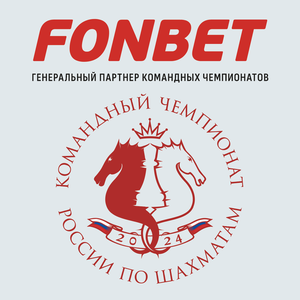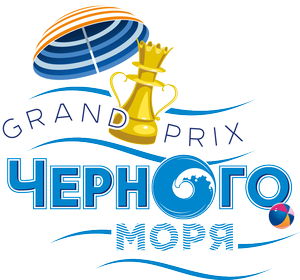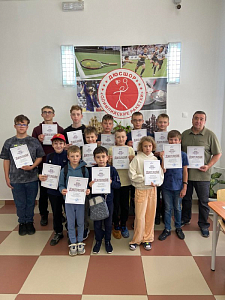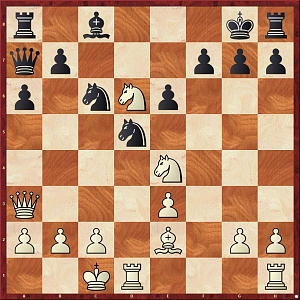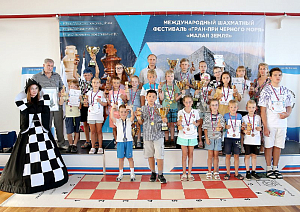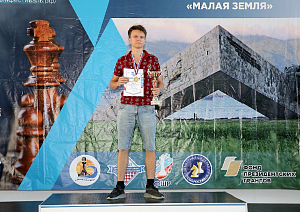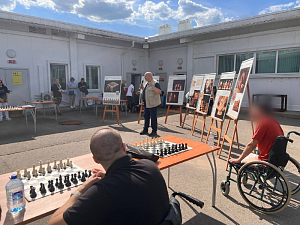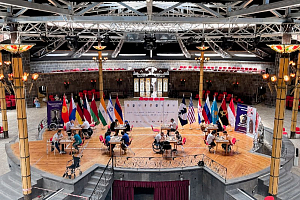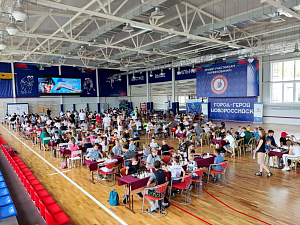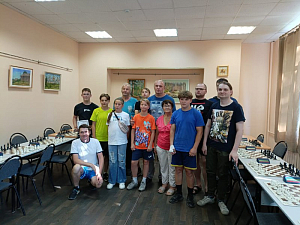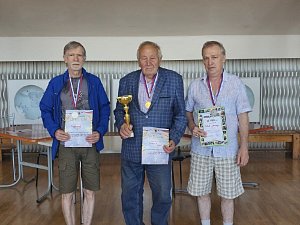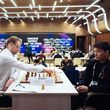Doyens of the Chess Trade
On the occasion of Vasily Smyslov’s 100th anniversary, Dmitry Kryakvin delves into the topic of long life and long-living
On March 24, the world celebrates a truly milestone date - the 100th birthday anniversary of the seventh world champion Vasily Vasilyevich Smyslov. This is a great chess player who got to know harmony and played as many as three world championship matches against the Patriarch of Soviet Chess Mikhail Moiseevich Botvinnik.
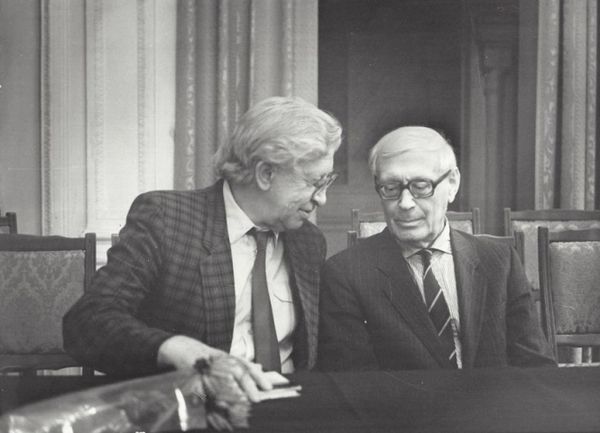
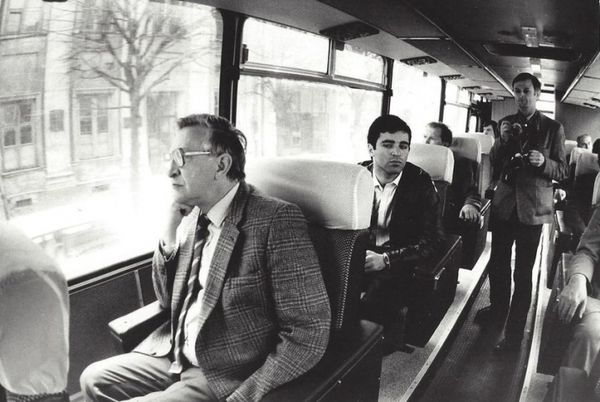
Having finished second in the Interzonal before that, Vasily Vasilyevich had left behind such players as Jan Timman, Tigran Petrosian, Bent Larsen, Vladimir Tukmakov, Lev Psakhis, and some other heavyweights. There followed a dramatic quarterfinal against Robert Huebner, when Smyslov made it to the next stage only thanks to the drawing of lots. When all the tie-breaker games ended in a draw, the ticket fate was being decided in the casino. The German grandmaster refused to witness the procedure in person, while Smyslov calmly took his place at the gambling table. He would not even bat an eye at the sight of zero dealt first. The croupier’s next spin was a lucky strike for the ex-world champion in this one-of-a-kind event.
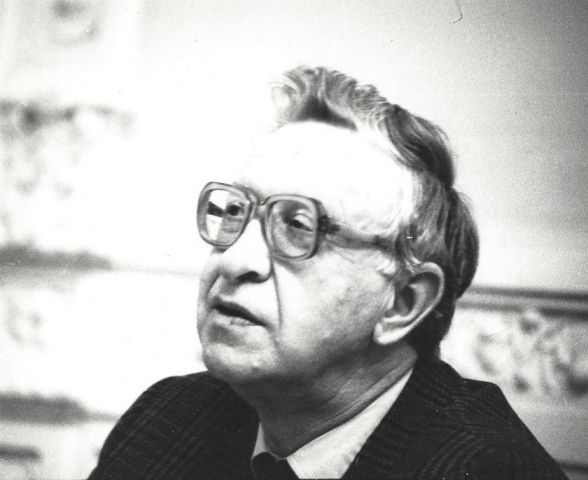
In the semifinals, Vasily Smyslov defeated the Hungarian Zoltan Ribli, and although his dream of challenging Anatoly Karpov never materialized, he remained a formidable opponent for any level opponent for a long time to come yet. Thus, in a unique lineup of the 1988 USSR championship, Vasily Vasilyevich finished in the middle, having defeated Vyacheslav Eingorn, Vasily Ivanchuk, and Jaan Ehlvest. In the Tilburg tournament of 1992, held to what was a pilot knockout system for those times, he went through as many as three rounds after knocking out his much younger Boris Gulko and Grigory Serper. Smyslov took the lead in the 1/8 against Evgeny Sveshnikov, but the latter managed to fight back and snatch the victory.
Your author first met Vasily Smyslov at the Igor Bondarevsky 1993-Memorial in Rostov-on-Don. Sergei Tivyakov, Lev Psakhis, and Vladimir Epishin, who were half a point behind, contested first place in the main tournament. Smyslov did not have a good tournament but saved an absolutely stunning endgame against Psakhis, which I did not manage to watch to the very end - it was already dark, the playing hall was empty, and the parents took home the young spectator. Now both Lev Borisovich and the computer confirm the veteran's simply amazing level of defensive performance.
Vasily Smyslov saw a long-lasting career in chess. His favorite competition was undoubtedly the then-popular Ladies vs. Seniors match. He even traveled to the remote and hot India, fought in the Russian Championship Higher League and the knockout world championships, acted as young stars’ sparring partner. In 1997, he scored a robust 2 out of 6 in tournament matchups with Emil Sutovsky, Judit Polgar and, Loek Van Wely. In his last competition against the fair sex (2001), the 80-year-old player managed to score 5 out of 10. He could play no longer over poor eyesight as the doctors prohibited his playing chess further. The legendary player passed away on March 27, 2010, a few days after his 89th birthday.
I find it frustrating when the following crosses my mind. We have had many memorial tournaments dedicated to Mikhail Tal. Mikhail Botvinnik and Tigran Petrosian’s memory was respected more in the way of super tournaments. As for Vasily Smyslov... This pandemic has broken out right before his centennial anniversary. I do hope that when the situation changes for the better by the summer, Vasily Vasilievich will be on the minds of the men of consequence.
I have undertaken to write these lines for this reason. Recently, when your author was in a taxi, a radio program was in the air in which Smyslov’s name was being mentioned. The radio program host, an energetic young man with fundamental knowledge of The Luzhin Defense and The Queen's Gambit, recalled that Yuri Lvovich Averbakh was now 99, and Vasily Vasilyevich had abandoned us on the threshold of his 90th birthday. He wondered how chess players’ life was, in general, should they not, like Luzhin, choose to jump out of the window or, like Beth Harmon, abuse alcohol or swallow pills? The co-host turned out to be a great connoisseur in oriental culture and immediately concluded that, most likely, Smyslov and Averbakh were an exception to the rule and that in terms of long-livers, things should be better for the Chinese, Japanese, and Koreans with their high standard of living and the tradition of playing Go. Quickly googling the birth dates of Mikhail Tal, Jose Raul Capablanca, Tigran Petrosian, and Alexander Alekhine, the audience concluded that playing chess was a very nervous and complicated business.
Indeed, are there many long-livers among chess players, and what helps delay the date of an unpleasant rendezvous with the lady wielding a scythe?
In general, it is far from easy to draw any conclusions with only very few facts available to you. Sir Winston Churchill argued that he owed his longevity to the sports - the English prime minister had never gone in for it. The KFC network founder, Colonel Sanders, who ate only in his restaurants out of principle, lived until 88, and the famous scientist Albert Hoffman, who tested powerful psychotropic substances on himself, died at 102. The luminary of biochemistry Alexander Neifhak liked to highlight a rabbit being always on the go and living two years, and a turtle being in no hurry and surviving as long as 400 years. It was a clever way of claiming that you can eat whatever you want and lead the lifestyle that appeals most to you.
Is there any evidence left to us by the classical players whose names are on everyone's lips? In his book "Secrets of a chess long-liver. Samuel Zhukhovitsky" the Novocherkassk master told Sergey Tkachenko that his life credo was being moderate in everything and taking walks.
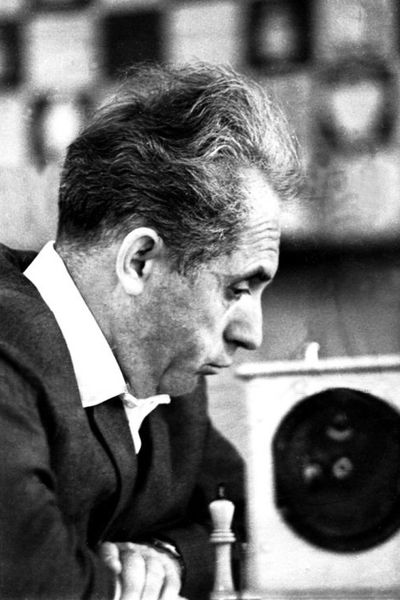
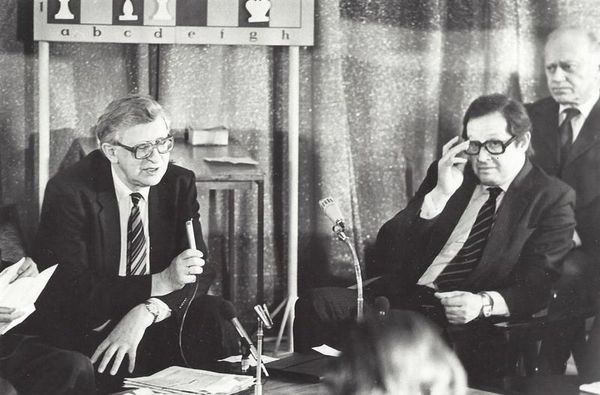
The author of the "Kings of the Chess World" encyclopedia and dozens of chess history books, Isaac Linder, was very fond of swimming. He would get up at 6 am and go to the pool every day. André Lilienthal, in a conversation with Vladimir Barsky, also highlighted, "A person must always work. I am already over 90, but I am constantly working, analyzing games, and publishing articles. I take a cold shower in the morning and swim in the pool all year round."
I came across a study carried out by scientists from the journal PLoS One, which claimed that grandmasters, on average, lived as long as Olympic athletes and outlived ordinary people by 7-8 years. "The comparative analysis has demonstrated that highly qualified chess players live much longer than ordinary people, and at least as long as Olympic athletes. On average, the players who earn the GM title at the age of 30 or earlier are known to live about 84 years, which is 10% higher than the average life expectancy in their residence countries.
Chess players live the longest in the USA and the developed countries of Europe, and the biggest differential in life expectancy recorded was between the Russian Federation and the countries of Eastern Europe”. However, it would be interesting to know the source of this data.
I immediately turned to my good friend, the many-time European champion Alexander Dinerstein, for the data about eastern players and the universe of Go. Indeed, our eastern colleagues are doing quite well in terms of living long lives. The legendary champion of the first half of the 20th century, Go Seigen, lived 100 years. Amazingly, it was always this master’s intent to live exactly this long, and, as always, his calculation proved to the point. Go Seigen stopped participating in tournaments rather early, but until the very last days of his life, he kept showing up at major competitions to analyze games displayed on monitors with his students. Go Seigen was confined to a wheelchair as his body no longer obeyed him, and his hand could not even uphold the weight of a stone and he instead pointed to the square of its setting on the board with the tip of a fan. However, the master’s brain functioned such that those around could still learn a lot from him.
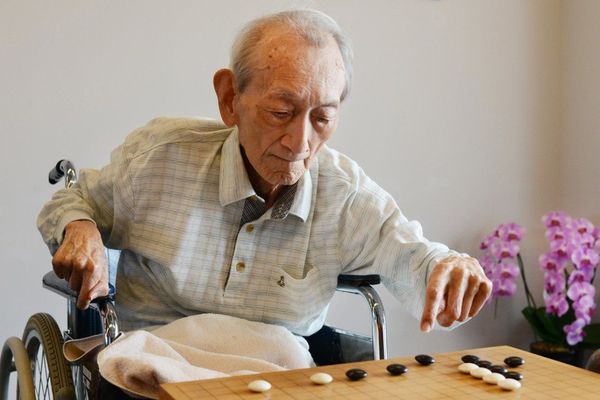
Hashimoto Utaro, one of Japan’s strongest masters of the 20th century, came up with a problem every day for as long as 40 years, which were published in the Osaka Yomiuri newspaper. He did not live to see his 100th birthday, but even on the day of his passing away, he, as usual, prepared a difficult-to-solve problem for the publication.
There are no less exciting examples, by the way. Conversely, the mathematics professor, Hirata Hiranori, is not a legendary champion, but developed his skills over the years to become the world amateur champion in 1995 at the age of 69. Hirata is now 93 years old, still participating in tournaments, and looking forward to the borders to open after the pandemic to once again represent Japan in the amateur world championship. It seems that the world record for the cumulative age of participants in a professional tournament game among the Go players is 171 years. Meanwhile, the most famous couple of long-living professionals is the "God of Go" Sugiuchi Masao, who passed away at the age of 97 years old. His little younger wife Sugiuchi Kazuko, who used to be one of Go’s strongest athletes, is still alive and even plays from time to time ...
With this in mind, what does chess have to say to that? Rather than relying on other people's theories, we will try to use real examples. I rush to bring my sincere apologies in advance should someone’s name be omitted, but assisted by such experts as Mikhail Krasenkow, Maxim Notkin, Vladimir Barsky, and Sergey Tkachenko (for which many thanks to them), we managed to come up with a rather impressive list. Should you spot that someone worth mentioning is not on it, please do not hesitate to write to dimakrya@mail.ru right away.
By the way, there is a huge number of names in the age range of 80-90, so the list starts from the death age of Vasily Vasilyevich. I can only mention the visitor from the 19th century — Jacques Mieses (88). Well, you need no explanations about the then level of medicine... Besides, the German maestro, born when Murphy was still alive and surviving two world wars, was constantly cited as a unique case.
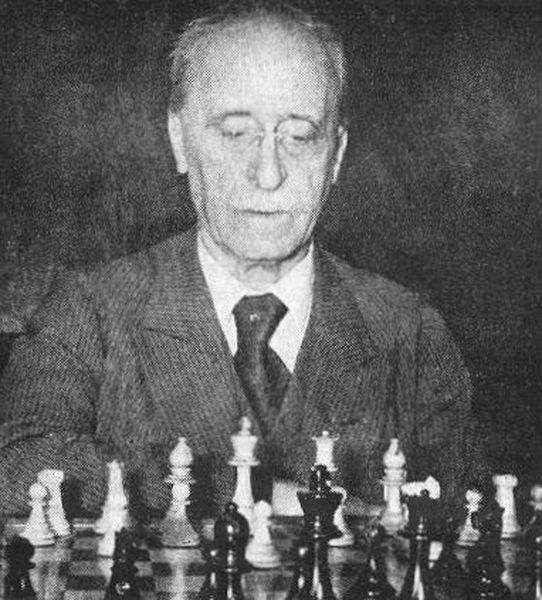
Let’s go with the list: the USSR champion Mark Taimanov (90); the US champion Arnold Denker (90); an honorary GM Arthur Dake (90); strong masters Georgy Borisenko (90), Iosif Vatnikov (90), Isaak Vistanetskis (90); participant of the Candidates tournaments Pal Benko (91); another famous master Anatoly Bannik (91); Sir George Alan Thomas (91); an honorary GM Elmar Zemgalis (91); an emigrant with an amazing fate Fedor Bogatyrchuk (91); Argentine champion Ruben Shocron (92); an honorary GM Mario Monticelli (93); Austrian champion Andreas Duckstein (93); Mikhail Botvinnik’s kind patron Yakov Rokhlin (93);
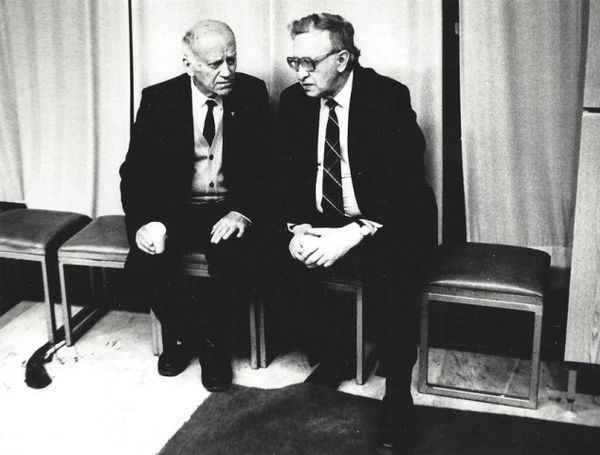
husband of the world champion Olga Rubtsova - master Abram Polyak (94); a historian and writer Isaak Linder; master Nikolai Novotelnov (95); namesake of the world champion - maestro Eduard Lasker (95); blindfold record holder George Koltanovsky (96); an honorary GM Enrico Paoli (97); master Andrey Khachaturov (97); nemesis of the world champions Andre Lilienthal (99), forerunner of Andrey Esipenko Samuil Zhukhovitsky (99); grandmaster’s namesake - master Francesco Benko (99); South American champion Aaron Schwartzman (105); famous correspondence master Zoltan Sarosi (110). By the way, when Schwartzman organized the exhibition matches of the “centennials” against Pal Benko the overall age of the players added up to an incredible figure.
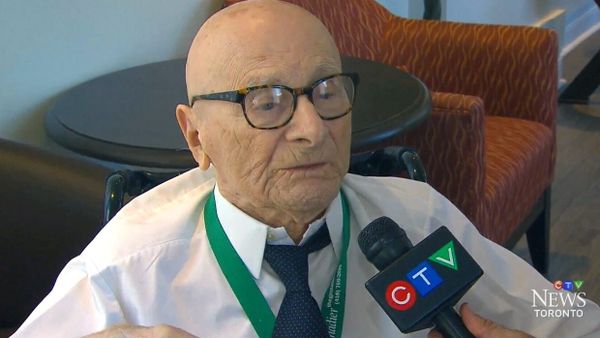
Luis Parenti (100) and Nikolay Rezvov (94) stand out among the specialist in developing chess problems, and we will not ignore the fair sex: the many-time RFSFR champion and longstanding leader of Russian chess Vera Tikhomirova; the USSR champion and participant of the Candidates tournaments Larissa Volpert (91); participant of the world championship match Kira Zvorykina (94); participant of the Candidates Tournament Kveta Eretova (94); member of the US women's team and philanthropist Jacqueline Pyatigorskaya (100). Olga Katskova (93), the many-time Moscow champion, is alive.
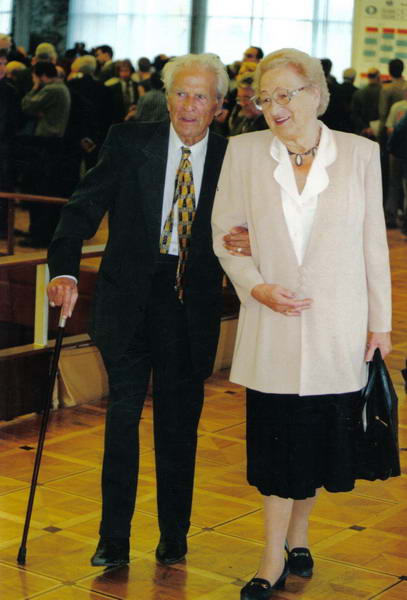
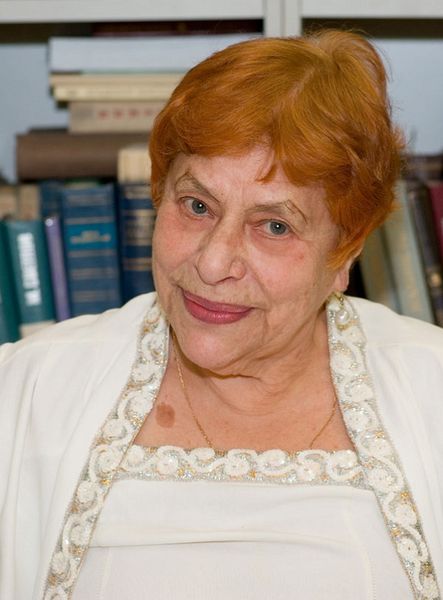
May God grant health to the entire cohort of veterans who are still with us. This number is not so small and lets this cohort’s representatives break all age records. Dieter Keller (84, a Swiss player who played famous games with Tal, Fischer and other legends); former FIDE President, GM and the Match of the Century participant Friedrich Olafsson (86); participants of Interzonal tournaments James Sherwin (87) and Klaus Darga (87); founder of “Informator” GM Alexander Matanovich (90); GM and long-standing head of the USSR State Sports Committee Nikolai Krogius (90); masters Edwin Bhend (90) and Georgy Ustinov (91); a famous historian and journalist Leonard William Barden (91); a mortar gunner, war hero, correspondence master Abram Khasin (98), and a GM, participant of the Candidates Tournament, USSR champion, chairman of the USSR Chess Federation, editor-in-chief of the Chess in the USSR magazine, author of the legendary endgame book series Yuri Averbakh (99).
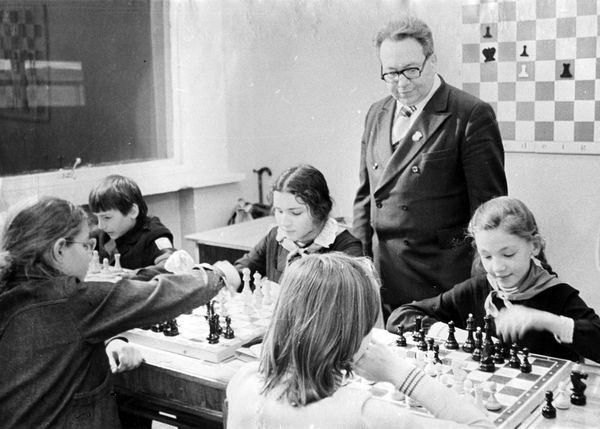
As you see, our trade has something to show for longevity. If you suddenly decide to quit the game — think about running a real risk of living seven years less.
I remember losing a game when a very young player, which then seemed to be the game of my life. I was inconsolable, but then a famous chess player of the older generation approached me. He said, “Dima, it doesn't matter who beats whom in his youth; it is important who outlives whom. And you can also switch to writing in later years. So, stop crying and start preparing for the veterans’ tournaments in advance. You will have a great team: Jakovenko, Khismatullin, Alekseev, Timofeev, and Belov. Maybe you also manage to persuade Grischuk. There is enough for two lineups! And while these chess monsters born around 1990 catch up with you, you will have already won everything that comes your way!" Not that it comforted me much but it set my thinking in a different direction.
So, my dear friends, do not lose your nerves, do not read Soviet newspapers before lunch, do not watch TV, walk more, swim and play chess, and study the games of Vasily Vasilyevich Smyslov, who has got to know harmony. Take care of yourself during the pandemic. I hope to see you on many occasions to come!
Photos: V. Barsky, V. Levitin, B. Dolmatovsky, V. Fligelis, the Go Federation of Russia, Wikipedia, ChessPro.ru, and Russianweek.com









